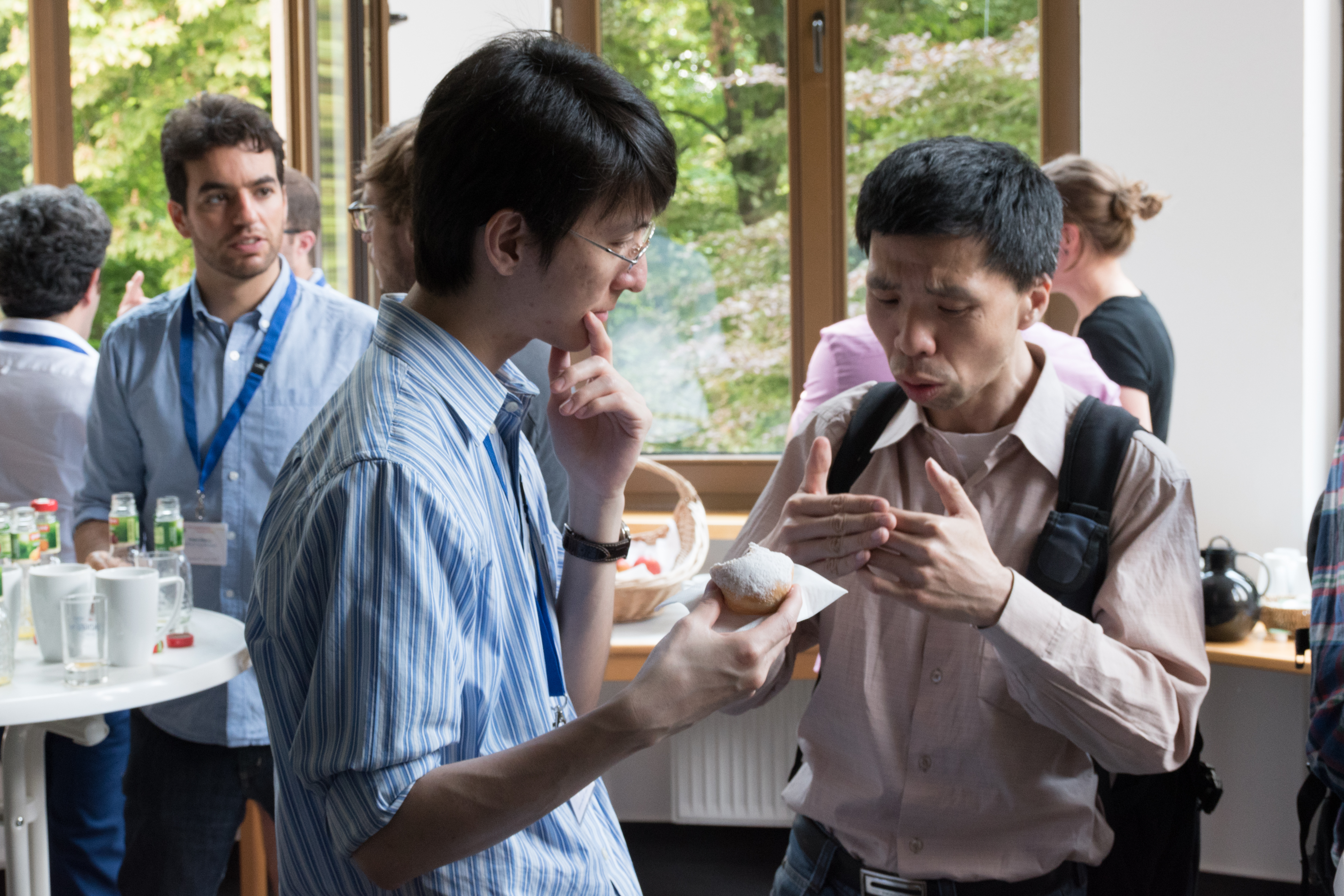Non-equilibrium Quantum Matter
Mainz, Germany: May 30th - June 2nd 2017
In contrast to equilibrium quantum systems, which exist in just a tiny corner of an immense configuration space, non-equilibrium quantum many-body systems can access the totality of configuration space and represent a rich resource for novel quantum states, including light-induced quantum-coherent phases of matter, topological phases and spin textures in solids and cold atom systems. Non-equilibrium many-body quantum dynamics is perhaps the last frontier in physics, where even the basic understanding is still lacking and a number of outstanding fundamental questions are wide open. However, there has been much recent progress in exploring these fundamental aspects on both theoretical and experimental sides.
This interdisciplinary workshop brings together leading experts – both theorists and experimentalists – working in the broad field and focuses on the most exciting recent developments in non-equilibrium many-body physics including: light-induced superconductivity, topological Floquet states, soliton motion in quantum superfluids, acoustic Hawking radiation in Bose-Einstein condensates, and quantum chaos and quantum butterfly effect.
The aforementioned developments, being the main motivation for the proposed workshop, make it clear that the theme of non-equilibrium quantum physics is not specific to a particular subfield, but cuts across different seemingly unrelated disciplines, including topological insulators, superconductors, cold atoms, bosonic and fermionic, neutral superfluids, driven cold atoms systems. The theory involved is equally diverse and spans fields from classical condensed matter, to mathematical physics (integrable systems and inverse scattering methods in the context of solitons), to even general relativity (geometric descriptions of superfluid’s dynamics).
The proposed program will include representatives from all these fields and promises to lead to a lively, intellectually stimulating, and highly interdisciplinary program. There will be a poster session on one of the days, where non-speakers can present their work, too.
Organizers
M. Foerst (Max Planck, Hamburg)
V. Galitski (University of Maryland)
M. Fuhrer (Monash University, Australia)
I. Spielman (University of Maryland)
Invited Speakers
| Igor Aleiner (University of Columbia) Immanuel Bloch (LMU, Munich) Joachim Brand (Massey University, New Zealand) Andrea Cavalleri (Max Planck, Hamburg) Cheng Chin (University of Chicago) Eugene Demler (Harvard) Sriram Ganeshan (Simons Center, NY) Jean-Claude Garreau (LU of Lille, France) Mohammad Hafezi (JQI, Maryland) Johannes Hofmann (Cambridge, UK) Lev Ioffe (Rutgers) Steve Johnson (ETH, Zurich) Dante Kennes (Columbia) Corinna Kollath (University of Bonn) Nethanel Lindner (Technion) Sebastian Loth (Max Planck, Hamburg) Aditi Mitra (New York University) |
Elena Ostrovskaya (Australian National University) Meera Parish (Monash University, Australia) Anatoly Polkovnikov (Boston University) Andrew Potter (University of Texas at Austin) Gil Refael (Caltech) Ana-Maria Rey (University of Maryland) Edbert Jarvis Sie (Gedik Group, MIT) Curt von Keyerlingk (Princeton) Jörg Schmiedmayer (VCQ, Vienna) Jeff Steinhauer (Technion) Sandro Stringari (University of Trento) Chushun Tian (Tsinghua University) Yaroslav Tserkovniak (UCLA) Klaus Sengstock (University of Hamburg) Grigorii Volovik (Landau Instititute and Aalto University) Martin Zwierlein (MIT) |








